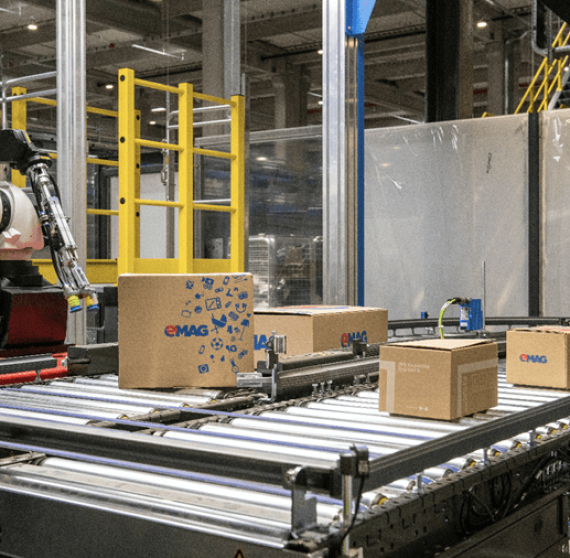Sustainable delivery
Our Food delivery and Etail companies are transforming how consumers eat and live their lives and rethink transportation in urban centres. But in an era marked by growing concerns over carbon emissions, climate change, air pollution, urbanisation and the pressing need for sustainable solutions, our global society is grappling with a dilemma: how to reconcile convenience with environmental responsibility. The food, grocery and etail delivery sectors, fuelled by rapid expansion and growing popularity, find themselves at the nexus of this challenge.
Large contributors to the GHG and environmental footprint of delivery platforms are the emissions from transportation and the packaging used to safely deliver the orders. Our delivery platforms are all taking decisive measures to tackle and reduce this impact, through investing in sustainable packaging and zero emissions delivery.
Scaling sustainable packaging
Digital delivery platforms can be a catalyst for implementing and scaling sustainable packaging solutions.
We play an active role in supporting our portfolio companies to develop sustainable packaging strategies, to prevent waste and harness the opportunity to scale solutions to millions of users.
In the absence of a global framework on sustainable packaging, we have articulated 10 golden rules for our own group companies to reduce waste in their own operations and their extended value chain. See our report on scaling sustainable packaging below
For the next few years, we will be working actively to map performance against these golden rules, catering to specific countries and markets of operations. Our specialised cross-sectoral working group, consisting of all our portfolio companies that use packaging, is our platform to identify and enable the adoption of best practices and learnings.
Zero emissions deliveries
Over the years, we have built a portfolio of Food Delivery and Etail companies that work with more than 2 million drivers to deliver over 275 million food and grocery deliveries per month from India to Brazil and South Africa to Europe. Electrification of delivery and other ways of zero emissions delivery offers the potential to accomplish an array of crucial societal objectives, that encompass environmental, social and economic benefits. It promotes environmentally friendly urban practices, mitigates localised air quality issues, generates employment opportunities, improves livelihoods of delivery drivers and fosters greater public acceptance of delivery services.
Our report Electrifying progress delves into the rationale and examples of electrifying delivery operations by the food, grocery and etail platforms with a specific focus on emerging markets (or so-called least developed countries). We identify barriers to scaling EV adoption, and we portray initiatives and best practices of successful businesses as they show leadership and uptake electrification within their delivery operations, allowing us to shed light on lessons learned.
Our goal is to contribute to a broader effort to disseminate existing insights into the implementation of electric delivery systems and empower industry stakeholders with the knowledge to make informed decisions. In doing so, we hope to pave the way for a more sustainable and responsible future for food, grocery and etail delivery operations worldwide.


